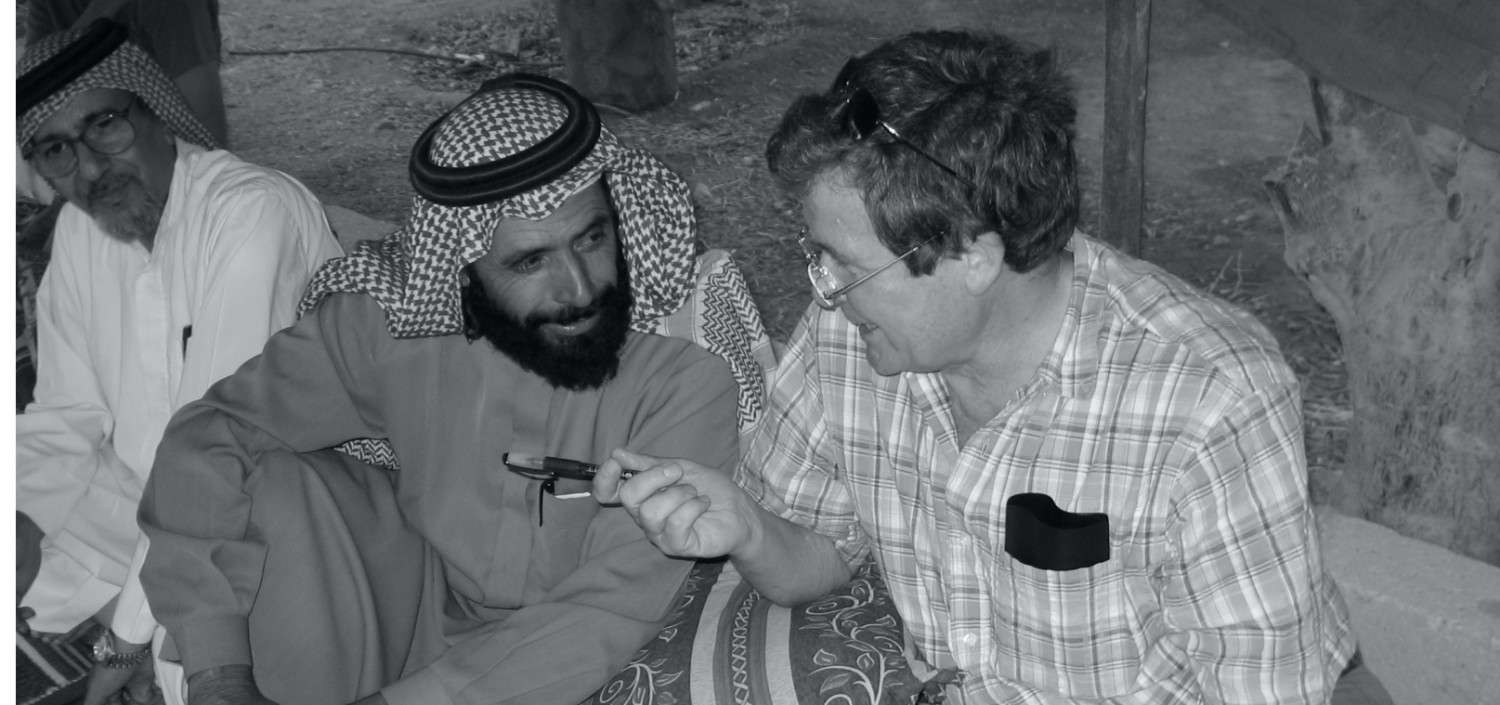Our Structure
As well as the Committee of Trustees, there are Standing Committees, some with a number of sub-committees. The chairs of these are responsible for reporting to the Trustees. Most of the committees meet two or three times a year, as appropriate, and the sub-committees (e.g. Bulletin, Monographs, etc.) meet as often as necessary for the completion of their tasks. The membership of the committees is outlined below.
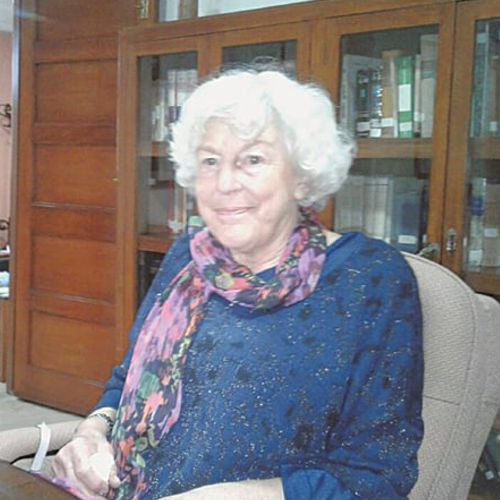
Professor Valeria Piacentini
Patron
In 2020 the Committee of Trustees elected Professor Valeria Piacentini as Patron of the IASA in recognition of her outstanding support for the IASA and its predecessors over many years and her generosity in providing funds that have enabled us to award grants for research in Arabia.
Committee of Trustees
-
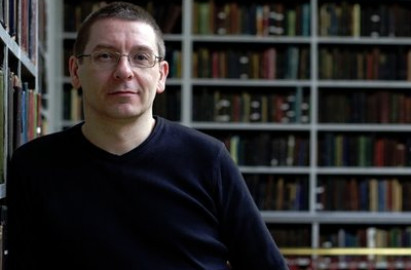
Mr Simon Alderson
Hon. Treasurer
I am the odd trustee out in terms of my background. My MA and PhD are in archaeology, but my field is Medieval Britain, and most of my experience of Middle Eastern archaeology was an excavation in Jordan a few years ago. Fortunately, I’m a trustee because I offer other experience in another field: I’ve been a qualified accountant for 25 years, and have run my own practice for over 20 years. Over my career I have always dealt with charities, and currently serve as either treasurer or reporting accountant to a number of charities. Consequently, I offer both accounting advice and knowledge of charity law and regulations to the IASA. I became involved with the IASA because I’ve known Derek Kennet for many years and he asked me to! I’m a great believer in the work done by educational charities as a whole and, having a soft spot for archaeological charities in particular, it wasn’t and isn’t a difficult decision to get involved.
-
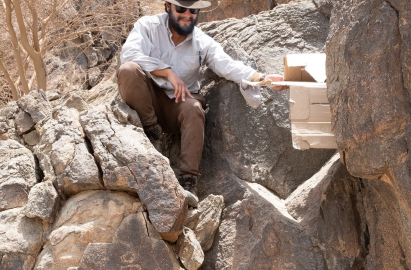
Professor Ahmad Al-Jallad
Trustee
Ahmad Al-Jallad is Univesitair Hoofddocent at the University of Groningen. His work focuses on the languages, writing systems, religions, and cultures of pre-Islamic Arabia and the ancient Near East. He has done epigraphic fieldwork in Jordan and Saudi Arabia and is currently directing the King Fayṣal Center for Research and Islamic Studies Ṭāʾif-Mecca epigraphic survey.
-
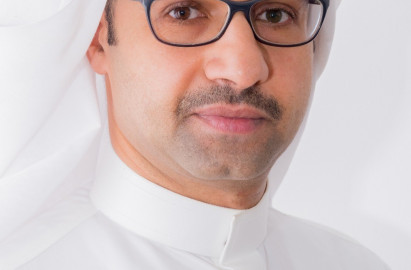
Dr Salman Al-Mahari
Trustee
Salman Al-Mahari, a Bahraini national, is currently serving as the Director of Antiquities and Museums at the Bahrain Authority for Culture and Antiquities. He has a PhD in Archaeology and has dedicated his career to this field since 2001. Throughout his career, Salman has presented scientific papers and lectures both locally and internationally, focusing on the history and archaeology of Bahrain. He has provided valuable insights into the results of archaeological excavations and the conservation of archaeological sites in Bahrain. In 2009, Dr. Salman Al-Mahari published a book titled “Archaeological Sites in the Kingdom of Bahrain: Threats and Challenges. He has also contributed to the field with publications such as “Conservation of Historic Buildings” by ICCROM-Sharjah Publications in 2018 and “Islamic Funerary Inscriptions in Bahrain” by Brill Publishing in English, also published in 2018. Dr. Salman Al-Mahari is a respected member of both the Bahrain History and Antiquities Society and the Arabian Gulf History and Antiquities Society. He actively engages in activities aimed at raising community awareness about the importance of preserving cultural heritage. In summary, Salman Al-Mahari is a highly accomplished archaeologist and museum director, known for his extensive knowledge and contributions to the field. His publications, lectures, and involvement in various societies demonstrate his commitment to preserving Bahrain’s rich cultural heritage.
-
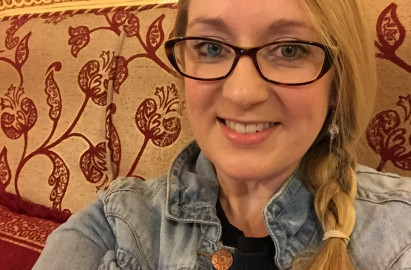
Dr Kate Ayres-Kennet
Secretary, Seminar for Arabian Studies
I hold degrees in archaeology and museum and artefact studies from Durham University. I spent over sixteen years directing museums both in the UK and UAE, latterly as Director of Museums to the Government of Ras Al Khaimah. I also hold a professional doctorate in heritage focussing on heritage management in the UK and UAE. For the last five years I have lectured part-time at Durham University in subjects relating to heritage and museums for both undergraduate and postgraduate modules.
-
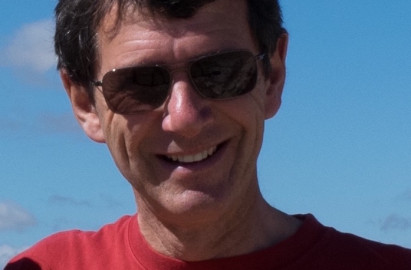
Dr Robert Bewley
Outreach Committee
I retired as the Director of the Endangered Archaeology in the Middle East and North Africa project in 2020, a project that began in 2015 and now has funding until 2024. More information on the project is available at http://eamena.arch. ox.ac.uk. In 2020, I was elected Chair of the Council for IASA NEWS British Research in the Levant (CBRL). I intend to continue working in aerial survey for archaeology wherever I can but especially Jordan and Oman (http://www.apaame.org/ ) as the director of those projects. I trained as an archaeologist (at Manchester and Cambridge Universities) and was initially employed at English Heritage as an Inspector of Ancient Monuments in 1984. I moved to the Royal Commission on the Historical Monuments of England in the Air Photography Unit in 1987, and became the Head of Aerial Survey until 2003 (by then back in English Heritage). I was Head of Survey 2003-4, and then English Heritage’s Regional Director for the South-West 2004-2007 and became Director of Operations for the Heritage Lottery Fund (2007-2014). My research interests are in aerial archaeology, prehistory, landscape archaeology and the Middle East and North Africa.
-
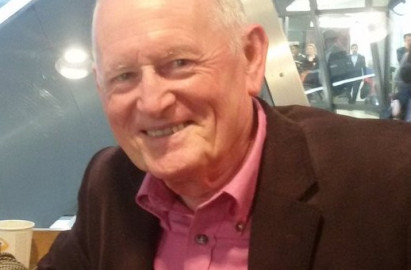
Dr Noel Brehony CBE
Trustee
After doing a PhD on Libya and post-doctoral research on the West Bank I joined the FCO and spent most of my career dealing with the Middle East with postings to Kuwait, Aden, Cairo and Amman. I was later Director of Middle East Affairs for Rolls-Royce plc, Chairman of Menas Associates, President of the British Society of Middle East Studies and Chair of the Council for British Research in the Levant. In the last few years I have focused on Yemen and was chair of the British Yemeni Society 2010-15 and 2018-9. My book on the PDRY, Yemen Divided , was published in 2011. I co-edited Rebuilding Yemen (2015) , edited Hadhramaut and its Diaspora (2017) and co=edited Global, Regional Local Dynamics in the Yemen Crisis (2020) , Britain’s withdrawal from Aden and South Arabia (2020) and Building a New Yemen (2021).
-
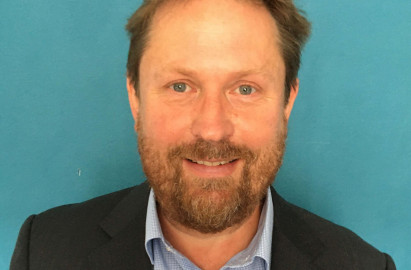
Professor Robert Carter
Trustee & Chair of Grants Committee
I am currently Senior Archaeology Specialist at Qatar Museums. Prior to this I was Advisor in Global Heritage at the Bahrain Authority for Culture and Antiquities, and Professor of Arabian Archaeology at UCL Qatar. I have broad interests in the archaeology and deep history of the region, from the Palaeolithic to the 20th century AD, particularly Neolithic seafaring, pearl-fishing and the foundation of the Gulf towns. My work with QM involves the instigation of research projects devoted to Qatar’s archaeological and historical past, as well as a broad advisory role. My own research project in Qatar is devoted to its rich archaeological heritage of the Early Islamic period. Previous work in Bahrain centred on the UNESCO World Heritage Site, Pearling, Testimony of an Island Economy, but I am also active in writing up the results of my years of excavation and research in Qatar, Bahrain, UAE and elsewhere.
-
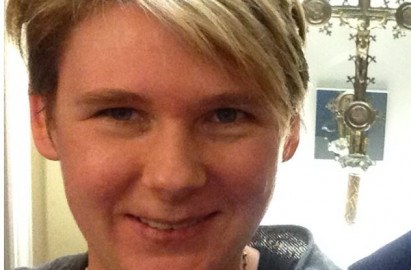
Ms Amy Crossman
Hon. Secretary
Amy is an independent conservation consultant, with 16 years’ experience working for national and international organisations, specialising in collections care and archaeological and ethnographic object conservation. For the last five years Amy has worked as an independent conservator. Amy has a particular interest in integrated pest management and provides specialist advice and training on pests in museums, archives and historic houses. Other interests include disaster planning and response, environmental management, exhibition design and hazardous collections. Amy has worked extensively in the Middle East, as Metals Conservator for the Dar Al Athar Al Islamiyyah/United Nations Development Programme in Kuwait, as conservation consultant for UCL Qatar and as Lead Objects Conservator on the Saruq Al Hadid Archaeological site in Dubai. Amy has long-term involvement in the delivery and development of the British Council’s International Museum Academy Myanmar programme, designing and delivering a national conservation training framework in preventive conservation, specifically implementing and progressing Integrated Pest Management countrywide. She speaks the Arabic language and has translated conservation terminology from English into Arabic and proof-read conservation literature translated from English into Arabic. She is committee member for the Pest Odyssey UK Steering Group and is an assessor for the British Council Cultural Protection Fund.
-
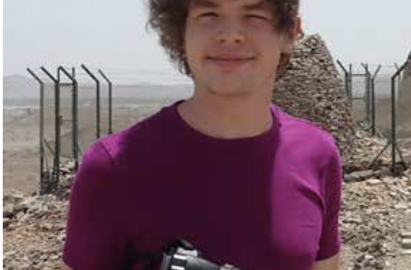
Dr William Deadman
Trustee & Membership Secretary
I studied Archaeology at Durham University. By chance this was one of the few UK universities conducting archaeological research in eastern Arabia. For my BSc dissertation I carried out remote sensing and ground survey mapping Hafit tombs around Wadi ‘Andam in Sharqiyah. I continued my research into Early Bronze Age Oman at Durham as a postgraduate, examining the nature of Umm an-Nar society for my MA, and mapping the distribution of Hafit tombs across the Batinah for my PhD. I also joined the Rustaq-Batinah Archaeological Survey project, and greatly enjoyed carrying out multi- period surveys with the RBAS team. I now work for Durham wing of the Endangered Archaeology in the Middle East and North Africa project, teaching local partners in Lebanon and Iraq how to use the EAMENA Arches site database, as well as GIS and map-making skills.
-
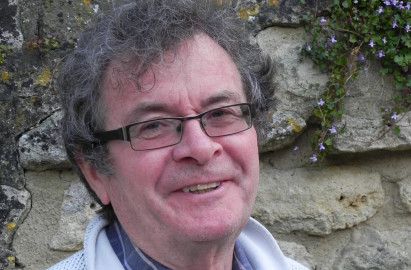
Professor Clive Holes FBA
Trustee
During the 1970s and 80s, I was an Overseas Career Officer of the British Council, serving in Bahrain, Kuwait, Algeria, Iraq and Thailand. I was involved in setting up Sultan Qaboos University, Muscat, Oman in the mid-80s and was the Director of its Language Centre 1985-7 whilst on leave from Salford University, where I was Lecturer in Arabic and Applied Linguistics 1983-7. In 1987 I took up a Lectureship in Arabic at Cambridge and a Tutorial Fellowship at Trinity Hall, being promoted to Reader in Arabic in 1996. In January 1997 I moved to Magdalen College Oxford and the Oriental Institute to take up the Khalid bin Abdullah AlSaud Chair for the Study of the Contemporary Arab World, from which I retired in 2014, becoming an Emeritus Professorial Fellow of Magdalen. I was elected a Fellow of the British Academy in 2002. My main interests are the languages, dialects and popular cultures of the Arabian peninsula from the earliest times to the present.
-
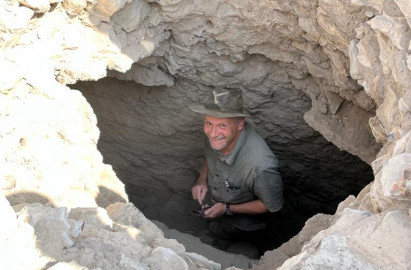
Professor Timothy Insoll FBA FSA FRAS
Trustee
Professor Timothy Insoll, FBA FSA FRAS is Al-Qasimi Professor of African and Islamic Archaeology and Director of Research at the Institute of Arab and Islamic Studies, University of Exeter, where he is also founding Director of the Centre for Islamic Archaeology. He is Honorary Archaeological Advisor to the Crown Prince and Prime Minister of Bahrain, HRH Sh. Salman bin Hamad Al-Khalifa and is an Honorary Curator in the Ghana Museums and Monuments Board and Honorary Lecturer, Department of Archaeology and Heritage Management, Addis Ababa University, Ethiopia. He is a Fellow of the British Academy, Society of Antiquaries and Royal Asiatic Society. He has completed extensive archaeological fieldwork in Gao and Timbuktu in Mali, northern Ghana, Bahrain, western India, and eastern Ethiopia, the latter as PI of a recently ended ERC Advanced Grant funded project Becoming Muslim (2016-2022). In addition to the ERC, he has received research funding from the Wellcome Trust, AHRC, British Academy, and Max van Berchem Foundation. He completed his studies at the Universities of Sheffield (1989-1992) and Cambridge, and after finishing his PhD (1992-1995) was a Research Fellow at St John’s College, Cambridge (1995-1998), and was subsequently at the University of Manchester (1999-2016). He is curator of two site museums in Bilad al-Qadim, Bahrain, and Harlaa, Ethiopia and has recently co-curated the new Islamic archaeology section, Ancient Islamic Societies, in the National Museum of Ethiopia. He has published extensively, including 11 monographs (one translated into Turkish and one into Persian), 13 edited volumes and special issues of journals and approximately 55 peer-reviewed journal articles, and 50 contributions to edited volumes. Most recently he edited a special section on the Islamic archaeology in sub-Saharan Africa for the Journal of Islamic Archaeology (2022, 9[2]), and is currently working on a monograph, Islamic Archaeology in Global Perspective (Abingdon: Routledge). Profe
-
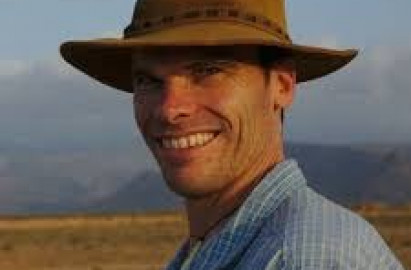
Dr Julian Jansen van Rensburg
Trustee
Currently I am the working as expert heritage consultant for the World Monuments Fund and the Royal Botanical Gardens in Edinburgh.
Most recently I have worked as Heritage Researcher for the AHRC GCRF Urgency Grant project “Mitigating climate change effects through traditional land management practices” and as Project Leader for the British Council Cultural Protection Fund project “CPL-185-16 Integrating Cultural Heritage into Conservation and Development Planning on Soqotra”. I have a masters in Maritime archaeology from Southampton University and a Doctorate from the Institute for Arab and Islamic studies at Exeter University. I have worked extensively across the Middle East both under and above water, although my specific field of expertise is the Soqotra archipelago.
My main research interests include cultural heritage management, rock art studies, GIS applications in archaeology, landscape archaeology, maritime archaeology, and Indian Ocean trade networks in Antiquity and the Islamic Period. I am specifically interested in conducting multidisciplinary research and my most recent National Geographic funded project used ancient DNA in conjunction with the archaeological, historic and ethnographic record to revealing the population history of Soqotra.
-
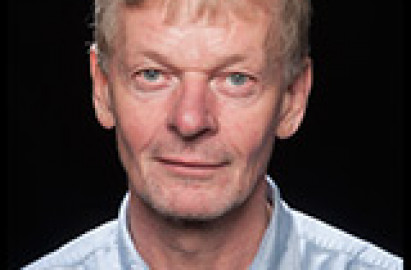
Professor Derek Kennet
Trustee & Joint Chair Seminar for Arabian Studies
I am the Howard E. Hallengren Professor in Arabian Peninsula and Gulf States Archaeology, Institute for the Study of Ancient Cultures (West Asia and North Africa), at the University of Chicago. I have been working on the archaeology of Islamic and pre-Islamic Eastern Arabia and the western Indian Ocean for almost 25 years. I am presently in the course of publishing field projects at Kadhima in Kuwait (in collaboration with the Kuwaiti National Council for Culture, Arts and Letters), at Qarn al-Harf in Ras al-Khaimah (in collaboration with the Department of Antiquities and Museums, Government of Ras al-Khaimah) as well as running a large survey project around Rustaq on the Batinah in Oman (in collaboration with Dr Nasser al-Jahwari of Sultan Qaboos University, the Anglo-Omani Society and the Omani Ministry of Heritage and Culture). At Durham I teach courses on the archaeology of Oman and Eastern Arabia and continue to supervise research students who are working on the archaeology of the region.
-
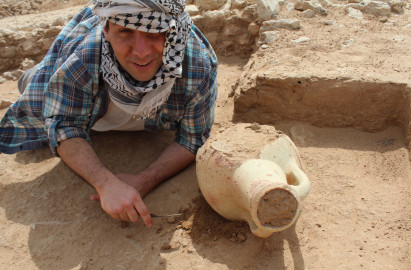
Dr José C. Carvajal López
Vice Chair & Joint Chair Seminar for Arabian Studies
José C. Carvajal López did his undergraduate degree and his PhD in the University of Granada (Spain). He then held a Marie Curie Intra European Fellowship in the University of Sheffield (UK), became lecturer of Islamic Archaeology in UCL Qatar, and since 2018 is a lecturer of Historical Archaeology at the University of Leicester (UK). His specialist field as an archaeologist is pottery and material culture in general, primarily in Iberia and Qatar, but he also has experience in landscape and architectural archaeology. He focuses on archaeological study of the Islamic culture, mainly in the process of Islamization and in interactions of Islam with other cultures. He searches for approaches that combine anthropological theory on material culture and analyses with scientific techniques.
-
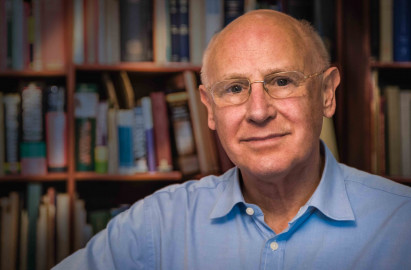
Mr Michael Macdonald
Trustee
I am an Honorary Fellow of Wolfson College and a Research Associate of the Khalili Research Centre in the University of Oxford. Between 2013 and 2017, I directed the Online Corpus of the Inscriptions of Ancient North Arabia project, funded by the AHRC and based at the Khalili Research Centre. This has produced an online database of more than 40,000 inscriptions from ancient North Arabia and more inscriptions are being added all the time. I have worked for the last 40 years on the languages, scripts and inscriptions of ancient North Arabia (including Jordan and southern Syria), ancient literacy and the history of the nomads. I undertake epigraphic surveys in the desert of north-eastern Jordan and in northern Saudi Arabia where I direct the British component of the Saudi-British-German project Epigraphy and Landscape in the Hinterland of Taymāʾ. This records the numerous inscriptions in the desert around the oasis of Taymāʾ in their topographical, hydrological and archaeological contexts. In 2018 I was awarded an honorary doctorate by the University of Chicago.
-
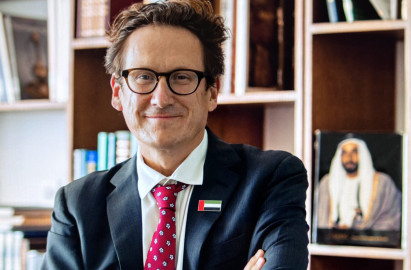
Professor Peter Magee
Chair
Peter Magee is Director of Zayed National Museum and the Head of Archaeology with the Department of Culture and Tourism – Abu Dhabi. From 2002 he served as Professor and then Chair of the Department of Classical and Near Eastern Archaeology at Bryn Mawr College in Philadelphia. At Bryn Mawr he also served as the Director of Middle Eastern Studies and the Assistant to the President on International Education. Prior to that he held academic posts at the University of Ghent and University of Sydney, from where he received his PhD in 1996. He has published widely on the history and archaeology of Arabia and adjoining regions and his most recent book was entitled The Archaeology of Prehistoric Arabia (Cambridge University Press, 2014). He has directed archaeological excavations in the UAE since 1994 and also co-directed an excavation at the late prehistoric settlement of Akra in Pakistan during the late 1990s. He was born in Northern Ireland and has lived in Australia, Belgium, the US and the United Arab Emirates. In his spare time he researches the origins of recipes and ingredients in the Middle East and South Asia.
-
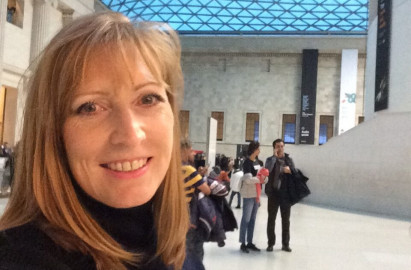
Ms Carolyn Metkola
Outreach Officer
A former Trustee and Chair of the IASA, I am now looking after Outreach for the organisation. I was previously Director of the MBI Al Jaber Foundation, active in the areas of education and cultural dialogue, and before that Manager of the Petrie Museum of Egyptian Archaeology, UCL and Arab World Education at the British Museum. I currently live in Albania, where I am working on archaeological projects as well as accompanying tours as lecturer. I am a member of the Advisory Board of the World History Encyclopedia, and the Board of Caabu (Council for Arab-British Understanding).

